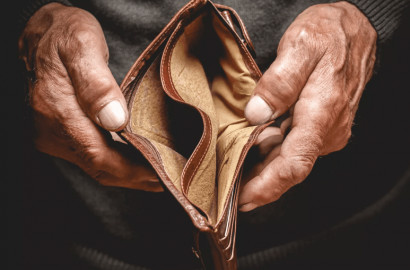Wananchi Opinion: When you owe more money than you can pay


Audio By Vocalize
Indebtedness is a financial condition in which an individual, business, or even a government owes more money than it can comfortably repay.
It often arises from borrowing beyond one’s means, poor financial planning, or unexpected economic challenges such as job loss or medical emergencies.
Living in debt can be stressful and limiting, as it reduces one’s ability to save, invest, or achieve financial independence.
However, with proper planning, discipline, and determination, it is possible to get out of indebtedness and regain financial stability.
The first and most crucial step toward getting out of debt is creating a realistic budget. A budget helps one track income and expenditure, revealing areas where money is being wasted.
By listing all sources of income and comparing them against monthly expenses, one can identify unnecessary spending and redirect those funds to debt repayment.
A well-prepared budget acts as a financial roadmap, ensuring that one lives within their means while working systematically to clear outstanding debts.
Another effective strategy is prioritising debts. Not all debts are equal; some carry higher interest rates or more severe penalties for non-payment.
Therefore, it is wise to list all debts, including credit cards, personal loans, and other liabilities, and decide which ones to pay first.
Two popular repayment approaches are the avalanche and snowball methods.
The avalanche method focuses on paying debts with the highest interest rates first, which minimizes total interest paid.
The snowball method, on the other hand, emphasises paying off the smallest debts first to build motivation and confidence. Whichever method one chooses, consistency and discipline are essential.
Cutting unnecessary expenses also plays a major role in escaping indebtedness.
Many people remain in debt because they continue to spend on luxuries they cannot afford.
Reducing non-essential spending such as entertainment, eating out, or impulse shopping can free up significant amounts of money.
A person committed to becoming debt-free should learn to differentiate between needs and wants. Living modestly for a period can pave the way to long-term financial freedom.
Increasing income is another practical way of accelerating debt repayment. This can be achieved through part-time jobs, freelance work, or selling unused items such as furniture, electronics, or clothing.
Some people turn their skills into small businesses that generate additional income streams. With more income directed toward paying debts, the repayment period shortens, and interest costs decline.
Negotiating with creditors is also a smart approach, especially when repayment becomes difficult. Many lenders are willing to offer flexible terms if the borrower communicates openly and demonstrates a genuine willingness to pay.
This may include reducing interest rates, extending repayment periods, or consolidating multiple debts into one manageable loan.
Debt consolidation is particularly beneficial for people juggling many small debts, as it simplifies payments and often lowers the total cost.
Avoiding new loans during the repayment period is equally important. Borrowing to settle existing debts only worsens the situation by creating a debt cycle.
It is advisable to resist the temptation to use credit cards or take quick loans unless absolutely necessary. Financial discipline, patience, and self-control are key virtues in this process.
Seeking professional financial advice can also make a significant difference. Financial counselors and advisors can help assess one’s debt situation, design a personalised repayment plan, and provide valuable guidance on money management.
Sometimes, debt problems stem from lack of knowledge rather than lack of income, and expert advice can offer practical solutions that a person may not have considered.
Lastly, maintaining good financial habits is essential to prevent a relapse into debt. This involves saving regularly, setting financial goals, and planning for emergencies.
Building an emergency fund can cushion unexpected expenses, reducing the need for future borrowing.
Once debts are cleared, the money previously used for repayments can be channeled into investments or long-term savings, ensuring financial growth and stability.
Though the process of getting out of indebtedness may take time, persistence and wise decision-making will ultimately lead to a debt-free and financially secure future.


Leave a Comment